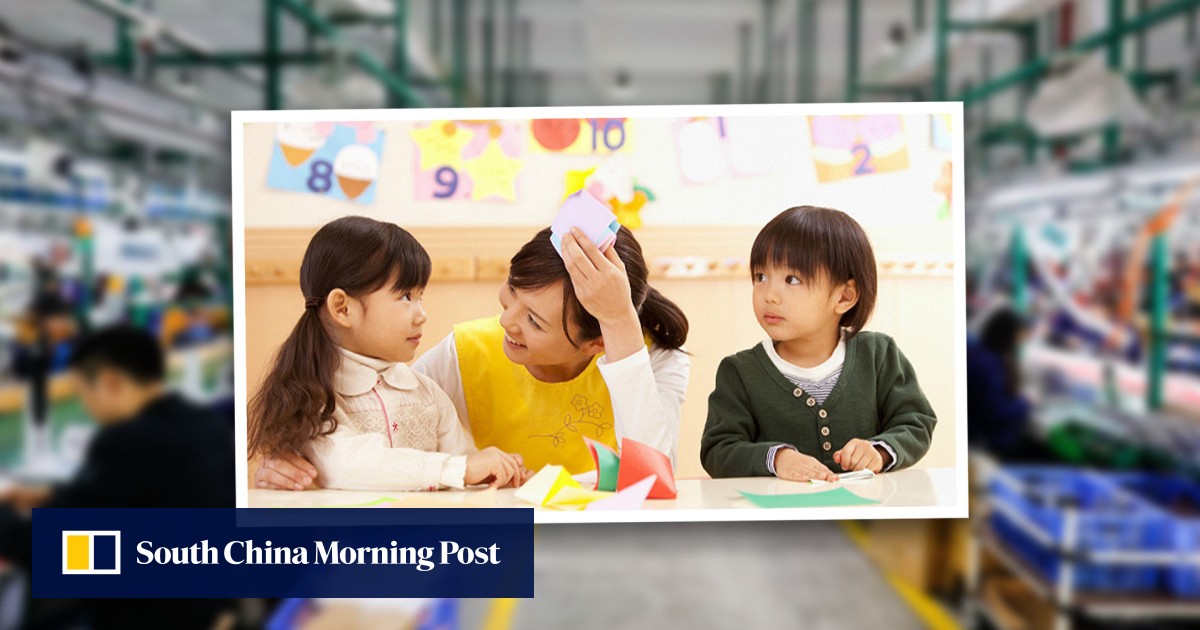Get Ya Wig Split
SENIOR MEMBER

- Joined
- Feb 22, 2017
- Messages
- 2,585
- Reaction score
- -2
- Country
- Location
China population: kindergartens fall for first time in 15 years as demographic crisis takes a toll
- Number of kindergartens fell in China by 5,610 to 289,200 last year, marking the first drop since 2008, according to a Ministry of Education annual report
- The number of students enrolled in kindergartens and preschools also dropped, a trend that coincides with China’s plunging birth rate and overall demographic crisis
The number of kindergartens in China fell for the first time in 15 years in 2022, signalling the toll taken by the country’s plunging births amid exacerbating demographic challenges.
According to an annual report published by the Ministry of Education on Wednesday, the number of kindergartens fell by 5,610 to 289,200 last year, marking the first drop since 2008.
The report also showed the number of students enrolled in kindergartens and preschools dropped by 3.7 per cent from a year earlier to 46.3 million in 2022.
The number of primary schools in China also tumbled by 3.35 per cent to 149,100 at the end of last year, while new enrolments sank by 4.55 per cent to 17 million.
A kindergarten in the Xisanqi suburb of Beijing, which opened in 2009, is set to close at the end of August due to “increasing enrolment difficulties, including falling births and the constant increase in public kindergartens”, it said in a recent letter.
The drastic drop in enrolments coincides with China’s plunging birth rate after Chinese mothers gave birth to just 9.56 million babies last year. This represented the lowest total in modern history and the first time the figure had dipped below 10 million.
China’s birth rate also fell to a record low of 6.77 per 1,000 people, while the overall population fell by 850,000 to 1.4118 billion, as deaths outnumbered births for the first time in six decades.
Despite the falling number of young children, demographers have pointed out that many parents are still struggling to find affordable public kindergartens due to significant shortage coupled with an intense competition for places.
More preschools and primary schools will close in the future, and “the fierce competition will separate the best from the rest,” said Yuan Xin, vice-president of the China Population Association and a professor of demography at Nankai University in Tianjin.
As the sharp drop in the number of preschools and primary schools has prompted concerns that some kindergarten teachers might lose their jobs, Yuan added that it is inevitable, and it will give rise to more profound social issues, which will be hard to solve.
“Physical facilities, such as campuses and classrooms, can be repurposed into elderly care facilities,” he said.
“However, kindergarten teachers, elementary school teachers, or high-school teachers can’t just easily transition into becoming caregivers for the elderly.”
In contrast to the shrinking number of kindergartens and primary schools, China recorded an expansion in vocational education amid a push for skilled blue-collar workers as manufacturers across the country are struggling to hire.
Last year, new enrolments in undergraduate vocational colleges jumped by 84.4 per cent from 2021 after adding 76,300 new students, the report said.
The number of undergraduate vocational schools enrolments also rose by nearly 77 per cent to 228,700.
By 2025, nearly 30 million manufacturing jobs in China will go unfilled, accounting for nearly half of all jobs in the sector, according to the Ministry of Human Resources and Social Security.
Its survey also found that around half of the top 100 jobs facing the most severe labour shortages in the second half of last year were in the manufacturing sector.






